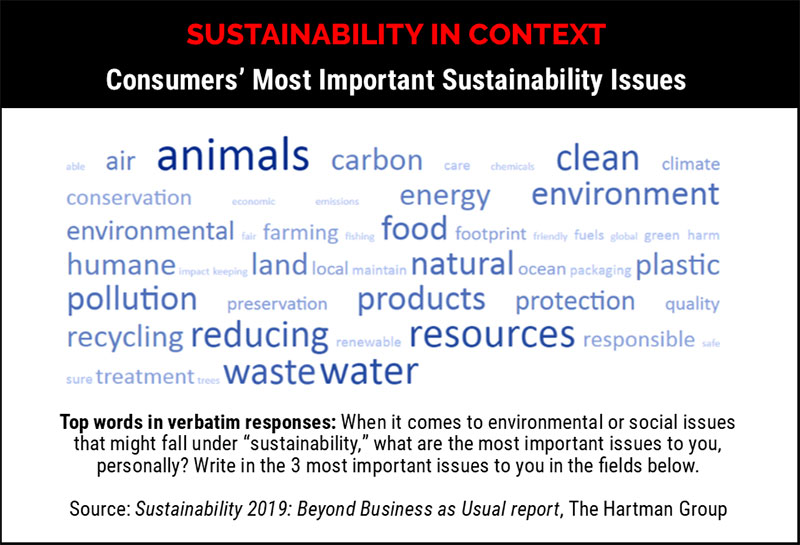Heightened Challenges and Institutional Inaction Fuel Consumers’ Hunger for Progress

How perplexing, yet essential, is it for consumers to make sense of living today in what is regularly presented to them as a new era of sustainability?
Sustainability, as a term, has not been seen by consumers as simply about “saving the earth”; it hasn’t been solely an environmental issue. It has been, and continues to be, a multidimensional topic that encompasses distinct areas of concern incorporating personal, social, environmental, and economic dimensions that act as pathways to deeper engagement.
Although consumers’ sense of responsibility to the greater good is broadly shared, they have made it quite clear that companies and government had better get their act together when it comes to solving the big problems affecting the environment and their own personal health and safety. One doesn’t have to look far for visible signs of the issues that need fixing — they’re everywhere and they’re close to home.
Americans today are surrounded by stories tracing the impact of their consumption on society, the natural world, and their own communities. Whether it’s extreme weather events, worker treatment, or plastics in food, the overarching narrative is one of systemic ills requiring urgent action.
This story is not a new one, but it is far more acutely felt and consistently articulated today. Consumers we speak with are summoning specific images and events that shape their perspectives and sense of urgency. Complex issues like climate change with implications for our future are now connected to events in the present, both globally and at home.

Consumer sentiment has evolved over the years. The Hartman Group’s Sustainability 2019: Beyond Business as Usual report documents today’s major problems and how they have changed over time. Here are three key issues:
• A Shifting Sense of Responsibility. For many years, consumers have considered individuals primarily responsible for sustainability in their roles as both citizens and consumers. However, recently a sea change seems to have occurred. More consumers consider sustainability the responsibility of government as the protector of both consumers and resources. Consumers continue to see companies as the cause of “the problem,” however, and therefore responsible for developing solutions.
• Fear, Apprehension, and Anger. Sustainability continues to be a key consumer concern and aspiration. According to our Sustainability 2019: Beyond Business as Usual report, faced with actual and potential rollbacks of social and environmental protections, many American consumers feel fear and anxiety about the future. They view the current moment as one of inaction at a critical time. Fear, anxiety, and regressive policies are catalyzing consumer desire for change. Fear may not be a sound basis for the progress consumers seek, but it does illuminate places where they hunger for honesty and leadership.
• Recycling’s Dead End? Sustainability consciousness refers to the way people link everyday life to “big problems.” Sustainability consciousness is not just about “eco-conscious consumers” and “the environment”; it is broadly distributed across society to include “everyday people.” As such, our report found that recycling is increasingly proving to be a dead end for sustainable behavior since many municipalities are struggling to find a solution for curbside collection limitations and consumers are very aware of it. Consequently, conscientious consumption and even “zero waste” movements are rising as a means for closing the gap between sustainable aspirations and action.
These points illustrate the fact that consumers have a lot of shared values relating to the role of companies in making the world a better place.
• It is important for companies to consider that while consumers still value sustainability as a quality cue, their motivations are shifting toward the greater good, indicating that a new baseline is forming. While consumers are increasing their purchases of sustainable products, it is playing out against perceived institutional inaction on widely shared moral and cultural values.
• As a result, consumers will expect companies to comply with and then exceed U.S. government standards to get this done, given their feeling that government is failing to set Americans on the right path to sustainability.
• The business-as-usual focus on near-term shareholder value can set companies up for missteps in a climate where being responsible means accountability to workers and external stakeholders.
Follow this link to learn more about the report: Sustainability 2019: Beyond Business as Usual

